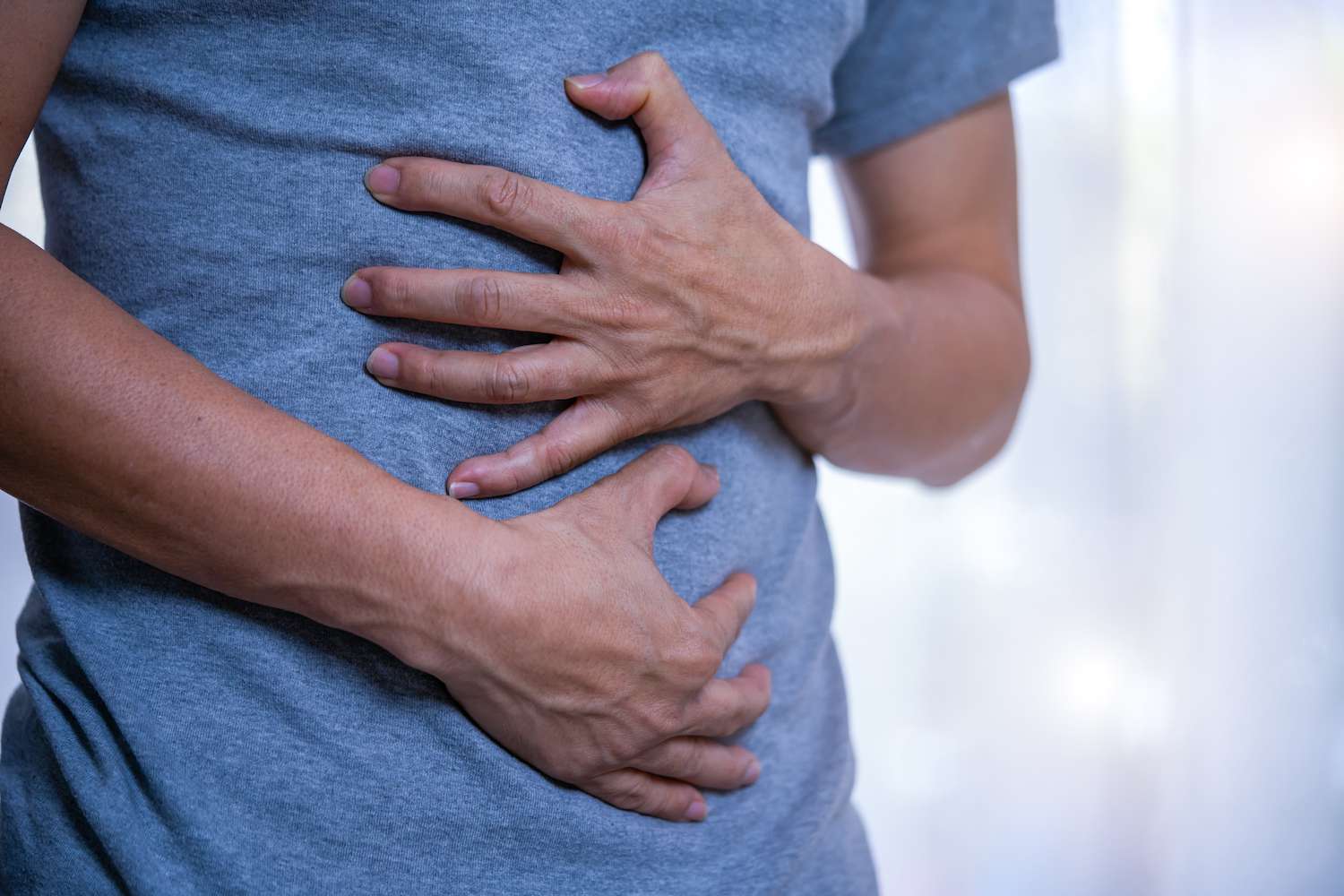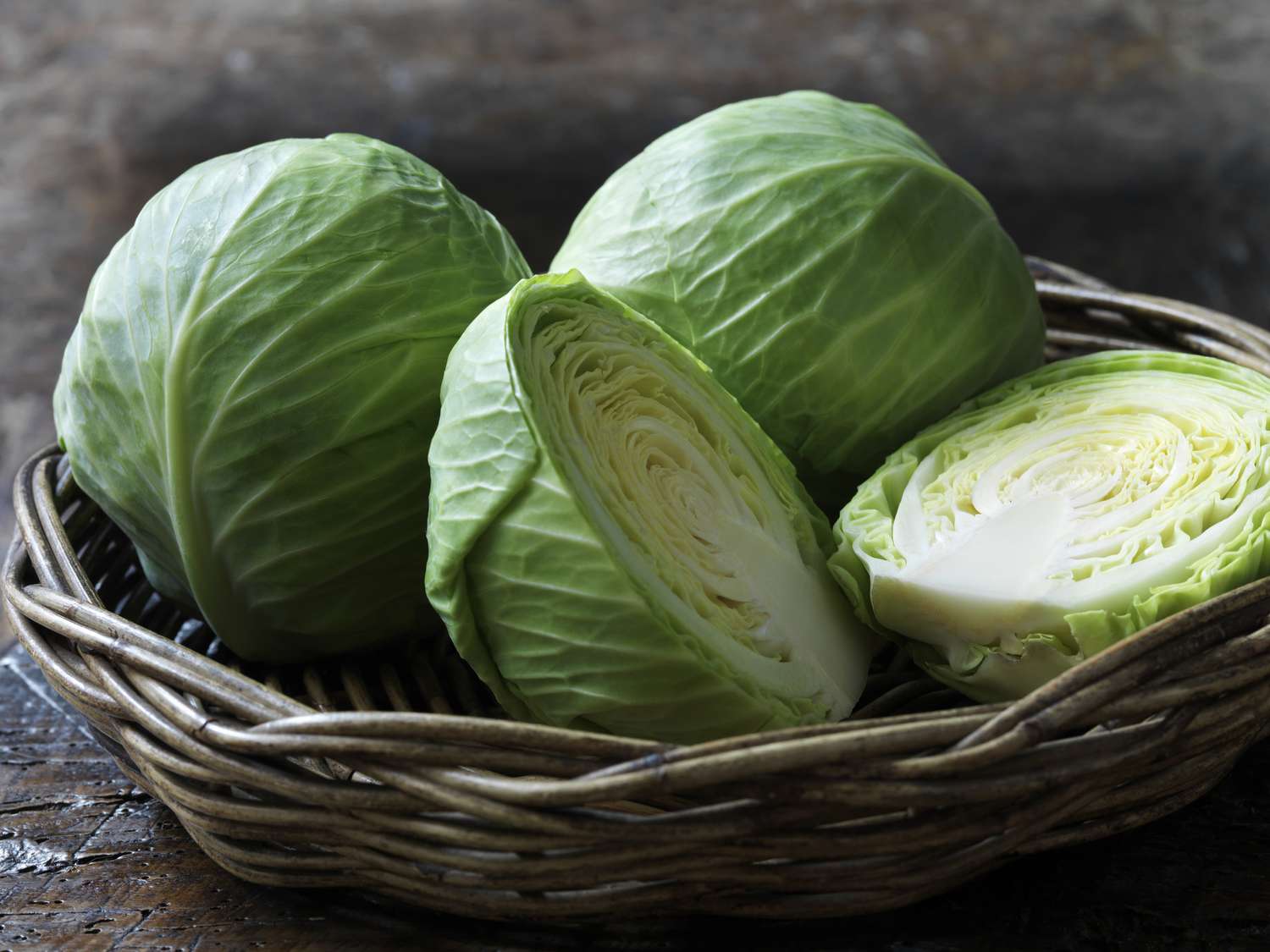

FAQs
Why Do You Fart Before You Poop
Modified: September 23, 2023
Find out the scientific explanation behind why gas builds up and is released before bowel movements. Get answers to general questions about this bodily function.
(Many of the links in this article redirect to a specific reviewed product. Your purchase of these products through affiliate links helps to generate commission for Under-tec.com, at no extra cost. Learn more)
Table of Contents
- Introduction
- The Physiology of Flatulence and Defecation
- The Relationship Between Farting and Pooping
- Gas Formation in the Digestive System
- The Role of Intestinal Bacteria
- The Effect of Diet on Farting and Pooping
- Other Factors that Influence Farting before Pooping
- Why Farting before Pooping is Normal and Healthy
- Tips for Reducing Farting before Pooping
- Conclusion
Introduction
Have you ever wondered why you sometimes experience the urge to fart right before you need to poop? It’s a common phenomenon that many people have experienced, yet few understand the underlying reasons behind it. In this article, we will delve into the fascinating world of flatulence and defecation to uncover the truth behind this peculiar occurrence.
The human body is a complex machine, and the digestive system plays a crucial role in breaking down food and extracting nutrients. Along the journey from your mouth to your rectum, various processes take place, leading to the formation of gas in the digestive tract. This gas buildup can cause discomfort, and in some cases, it needs to find its way out.
As we explore the relationship between farting and pooping, it’s important to understand the physiological aspects involved. The digestive system consists of several organs, including the stomach, small intestine, large intestine, and rectum. Each plays a vital role in the process of digestion and elimination. The intricate coordination of these organs ensures the smooth flow of waste materials out of the body.
Gas formation is a natural byproduct of the digestive process. When you eat or drink, you also ingest air, which can contribute to the volume of gas in your digestive system. Additionally, the breakdown of certain types of food by intestinal bacteria leads to the production of gases such as methane, hydrogen, and carbon dioxide.
What causes the sensation of needing to fart before you poop? The answer lies in the positioning of the rectum and the movement of fecal matter. When stool accumulates in the rectum, it applies pressure on the surrounding tissues and nerves. This pressure can stimulate the nerve endings, giving you the urge to release gas in order to alleviate the discomfort.
Furthermore, the muscular contractions that occur during the process of defecation can also contribute to the release of gas. As the muscles in the rectum and anus relax to allow for the passage of stool, they may inadvertently allow trapped gas to escape as well.
While farting before pooping is a natural and common occurrence, certain factors can influence the frequency and intensity of this phenomenon. Diet plays a significant role, as certain foods, such as beans, cabbage, and carbonated beverages, are notorious for causing excess gas production. Other factors, such as lifestyle choices, medical conditions, and even stress, can also impact the frequency and timing of farting before pooping.
In the following sections, we will explore in greater detail the various factors that contribute to the correlation between farting and pooping. As we unravel the mysteries of the digestive system, we will discover why this seemingly odd occurrence is actually a normal and healthy aspect of our bodily functions.
The Physiology of Flatulence and Defecation
To understand why you may experience the urge to fart before you poop, it’s essential to delve into the physiology of flatulence and defecation. The digestive system, which stretches from the mouth to the rectum, performs a series of intricate processes to break down food and eliminate waste.
When you consume food and fluids, they travel through the esophagus and into the stomach, where they are broken down by stomach acid and digestive enzymes. From the stomach, the partially digested material enters the small intestine, where further breakdown and absorption of nutrients occur.
As this journey continues, the remaining undigested matter moves into the large intestine or colon. This is where water is absorbed and stool is formed. The colon is home to trillions of bacteria, particularly in the lower section known as the sigmoid colon. These bacteria play a crucial role in digestion, breaking down substances that the body cannot digest on its own.
Gas formation is a normal byproduct of digestion. When you eat or drink, you swallow air along with the food and beverages. This air can accumulate in the digestive system and contribute to the volume of gas present. Additionally, the breakdown of certain types of carbohydrates by the bacteria in the colon produces gases such as methane, hydrogen, and carbon dioxide.
The sensation of needing to fart before you poop is often due to the positioning of the rectum and the movement of stool. The rectum is the final section of the digestive tract, located just above the anus. When stool accumulates in the rectum, it creates pressure on the surrounding tissues and nerves.
This pressure stimulates the nerve endings, triggering the urge to release gas. Farting before pooping helps alleviate the discomfort caused by the buildup of gas. At the same time, the muscular contractions in the rectum and anus that occur during defecation can unintentionally allow trapped gas to escape.
It’s important to note that the frequency and intensity of farting before pooping can be influenced by various factors. One such factor is diet. Certain foods, including beans, cabbage, onions, and carbonated drinks, are known to cause excessive gas production. If you consume these foods regularly, you may experience more frequent episodes of farting before pooping.
Other factors that can influence the correlation between farting and pooping include lifestyle choices, medical conditions, and stress levels. Smoking, chewing gum, and drinking through a straw can contribute to swallowing excess air, leading to increased gas in the digestive system. Medical conditions like irritable bowel syndrome (IBS) and lactose intolerance may exacerbate symptoms and lead to more frequent gas production.
Now that we have explored the physiological aspects of flatulence and defecation, we will dive deeper into the relationship between farting and pooping to better understand why this is a natural and healthy occurrence.
The Relationship Between Farting and Pooping
There is a strong correlation between farting and pooping, and understanding this relationship can shed light on our body’s natural processes. The act of farting, also known as flatulence, is the release of gas from the digestive system through the rectum. On the other hand, pooping refers to the elimination of solid waste from the body.
While it may seem odd that farting often precedes pooping, there is a logical explanation for this sequence. As stool accumulates in the rectum, it exerts pressure on the surrounding tissues and nerve endings. This pressure stimulates the nerves, resulting in the sensation of needing to pass gas.
When you feel the urge to fart before you poop, it’s your body’s way of releasing some of the excess gas that has built up in the digestive system. This release provides relief and makes it easier for the fecal matter to pass through the rectum and out of the body.
In addition to the pressure caused by the stool, the muscular contractions involved in defecation can also contribute to the release of gas. As the muscles in the rectum and anus relax to allow for the passage of stool, they may also unintentionally allow trapped gas to escape.
It’s important to note that farting before pooping is a normal and healthy occurrence. It indicates that your digestive system is functioning properly, releasing built-up gas and facilitating the elimination of waste. Holding in gas or delaying bowel movements can result in discomfort or even constipation, so it is essential to listen to your body’s natural cues and allow for the release of gas before and during a bowel movement.
While farting is a natural bodily function, it is important to consider the social context in which it occurs. Farting in public or in social settings may be embarrassing or considered impolite in many cultures. However, it is vital to remember that everyone farts, and holding them in can lead to abdominal discomfort or bloating.
Overall, the relationship between farting and pooping is a harmonious and necessary part of our digestive system. It allows for the release of excess gas and the smooth elimination of waste from our bodies. Understanding and embracing this relationship can help promote a healthier digestive system and reduce any discomfort associated with gas buildup or bowel movements.
Gas Formation in the Digestive System
Gas formation is a natural process that occurs in the digestive system. When we eat and drink, we not only consume nutrients but also swallow air. This air can accumulate in the digestive tract and contribute to gas formation. Additionally, the breakdown of certain types of food by intestinal bacteria produces gases such as methane, hydrogen, and carbon dioxide.
The stomach serves as the initial destination for swallowed air. While some of the air is released through burping, a portion of it continues its journey through the digestive system. As the food and air mixture enters the small intestine, the body absorbs the nutrients, while the remaining gases continue into the large intestine or colon.
In the colon, gas production continues as undigested food moves through. The human body houses trillions of bacteria in the colon, particularly in the lower section known as the sigmoid colon. These bacteria play a crucial role in digestion, breaking down substances that our bodies cannot digest on their own.
When carbohydrates reach the colon, bacteria ferment them, producing gases as a byproduct. This fermentation process generates gases like carbon dioxide, hydrogen, and methane. The quantity and composition of gas produced can vary depending on the types of carbohydrates present in the diet and the types of bacteria present in the colon.
Furthermore, the breakdown of certain sulfur-containing substances, such as those found in foods like cabbage, onions, and garlic, can produce gases with an unpleasant odor. The presence of these sulfur gases can contribute to the distinctive smell often associated with passing gas.
While gas formation is a natural part of digestion, excessive gas can cause discomfort and bloating. Certain factors can contribute to increased gas production, such as consuming large amounts of gas-producing foods, eating too quickly, drinking carbonated beverages, or swallowing excess air due to habits like chewing gum or smoking.
It’s important to note that the presence of gas in the digestive system is not always a cause for concern. In fact, passing gas is a normal bodily function and can help relieve discomfort. However, if you experience excessive or persistent gas, along with symptoms like abdominal pain, changes in bowel movements, or weight loss, it is advisable to seek medical advice, as it may indicate an underlying condition.
Understanding the process of gas formation in the digestive system can help us better manage and cope with occasional gas-related discomfort. Making dietary adjustments, practicing mindful eating habits, and seeking medical advice when necessary can contribute to a healthier and more comfortable digestive experience.
The Role of Intestinal Bacteria
Intestinal bacteria play a crucial role in the digestive process and are key players in the formation of gas in our digestive system. Our gut is home to trillions of beneficial bacteria, collectively known as the gut microbiota, which aid in digestion, nutrient absorption, and overall gut health.
When we consume food, particularly carbohydrates, that our bodies are unable to fully digest, these undigested substances reach the large intestine or colon. Here, the intestinal bacteria begin to break down these complex carbohydrates through a process called fermentation. As a result of this fermentation, gases such as carbon dioxide, hydrogen, and methane are produced.
The specific types of bacteria present in our gut can influence the composition and quantity of gas produced during fermentation. Different bacterial species have varying capabilities and preferences for digesting different types of carbohydrates. Therefore, the types of foods we eat can directly impact the gas production by influencing the types of bacteria present in our gut.
The balance of bacteria in our gut microbiota is essential for optimal digestion and overall health. Certain beneficial bacteria, such as Bifidobacteria and Lactobacilli, help break down complex carbohydrates and produce beneficial substances like short-chain fatty acids, which nourish the cells lining our colon.
However, an imbalance in the gut microbiota, known as dysbiosis, can lead to excessive gas production and digestive issues. Factors such as a poor diet, stress, medications like antibiotics, and certain medical conditions can disrupt the balance of bacteria in the gut, leading to an overgrowth of gas-producing bacteria or a reduction in beneficial bacteria.
In some cases, an overgrowth of bacteria in the small intestine, known as Small Intestinal Bacterial Overgrowth (SIBO), can occur. This can lead to increased gas production, bloating, and other gastrointestinal symptoms. SIBO is commonly associated with conditions such as irritable bowel syndrome (IBS) and can be addressed through dietary modifications and targeted treatment.
Understanding the role of intestinal bacteria in gas production can help us make dietary choices that promote a healthy gut microbiota. Including fiber-rich foods in our diet, such as fruits, vegetables, and whole grains, can provide the necessary nutrients to support the growth of beneficial bacteria. Probiotic-rich foods and supplements can also help replenish and maintain a diverse gut microbiota.
While intestinal bacteria contribute to gas formation, it is important to note that not all gas produced in the digestive system is related to bacteria. Swallowing air while eating, talking, or drinking can also contribute to gas in the digestive tract. To minimize this type of gas, it’s recommended to eat slowly, chew thoroughly, and avoid habits like chewing gum or drinking carbonated beverages.
In the next section, we will explore the impact of diet on farting and pooping to gain a better understanding of the connection between our food choices and gastrointestinal gas.
The Effect of Diet on Farting and Pooping
Our diet plays a significant role in the frequency and intensity of farting and pooping. The foods we consume can affect the production of gas in our digestive system and impact the overall health and regularity of bowel movements.
Certain foods are notorious for causing excessive gas production. Legumes, such as beans, lentils, and chickpeas, contain complex sugars that are challenging for our bodies to digest fully. As a result, when these carbohydrates reach the colon, intestinal bacteria ferment them, leading to the release of gases like methane and hydrogen.
Cruciferous vegetables like cabbage, broccoli, and cauliflower also contain carbohydrates that are prone to fermentation in the colon. The breakdown of these specific carbohydrates by intestinal bacteria produces gases, contributing to bloating and gas buildup.
Onions, garlic, and other foods rich in sulfur compounds can also contribute to foul-smelling gas. When these substances are broken down in the colon, they produce sulfurous gases, which can lead to a distinct odor when passing gas.
Carbonated beverages, including soda and sparkling water, can introduce large amounts of carbon dioxide into the digestive system. This can increase gas buildup and lead to more frequent episodes of farting.
In contrast, a diet rich in fiber, particularly soluble fiber, can have a positive impact on both farting and pooping. Soluble fiber absorbs water and forms a soft, bulky stool that is easier to pass through the digestive system. This type of fiber can help regulate bowel movements and reduce instances of constipation.
Including fruits, vegetables, whole grains, and legumes in your diet can provide the necessary fiber to promote regular and healthy bowel movements. It’s important to increase your fiber intake gradually to allow your digestive system to adjust and minimize potential gas-related discomfort.
In addition to fiber, staying hydrated is essential for proper digestion. Drinking an adequate amount of water throughout the day helps soften the stool, making it easier to pass and reducing the likelihood of constipation.
Individual responses to different foods vary, and it’s important to listen to your body and identify specific trigger foods that may cause excessive gas or digestive discomfort. Keeping a food diary can help you track your symptoms and identify patterns.
It’s worth noting that dietary factors are not the sole contributors to farting and pooping patterns. Other lifestyle factors, such as physical activity, stress levels, and use of medications, can also influence digestive health.
In the following section, we will explore other factors that can influence the frequency of farting before pooping to gain a comprehensive understanding of this natural bodily occurrence.
Other Factors that Influence Farting before Pooping
While diet plays a significant role in farting before pooping, there are other factors that can influence the timing and frequency of this occurrence. Understanding these additional factors can help provide a more comprehensive understanding of why farting often precedes pooping.
One important factor is lifestyle choices. Engaging in regular physical activity can help stimulate the bowels and promote healthy bowel movements. Lack of exercise or a sedentary lifestyle, on the other hand, can contribute to sluggish digestion and potentially lead to a buildup of gas.
Stress is another factor that can impact our digestive system. When we are under stress, our bodies produce stress hormones that can slow down digestion. The slowing of digestion can lead to increased gas retention and a delay in bowel movements, which may result in farting before pooping.
Certain medications can also affect our digestive system and contribute to increased farting. Some medications, such as antibiotics, can disrupt the balance of bacteria in the gut, leading to an overgrowth of gas-producing bacteria. Additionally, medications that promote relaxation of muscles, like certain pain medications or muscle relaxants, can also impact the muscles in the digestive tract, potentially leading to increased gas passage.
Individual differences in the sensitivity of the nerves in the digestive system can also influence farting before pooping. Some people may have more sensitive nerves in the rectum, leading to an increased perception of gas and a stronger urge to release it before a bowel movement.
Medical conditions can also play a role in the frequency and timing of farting before pooping. Conditions such as irritable bowel syndrome (IBS), inflammatory bowel disease (IBD), and lactose intolerance can lead to increased gas production and altered bowel habits. It is essential to seek medical advice if you experience chronic or severe digestive symptoms.
Lastly, cultural and social factors may also influence our behavior in relation to farting before pooping. In some cultures, discussing bodily functions or passing gas openly may be considered impolite or embarrassing. This can lead individuals to hold in gas or delay bowel movements, potentially causing discomfort or constipation.
Understanding these various factors that influence farting before pooping allows us to have a more nuanced perspective on this natural bodily occurrence. It reminds us that everyone’s experience may differ, and taking into account individual factors can help manage and promote a healthy digestive system.
In the next section, we will discuss why farting before pooping is considered normal and healthy, dispelling any concerns or misconceptions surrounding this bodily phenomenon.
Why Farting before Pooping is Normal and Healthy
The act of farting before pooping is a normal and healthy occurrence in the human digestive process. It is a natural way for the body to release excess gas and facilitate the elimination of waste from the body.
Firstly, farting before pooping helps to relieve discomfort and bloating caused by the buildup of gas in the digestive system. The pressure from accumulated stool in the rectum can stimulate nerve endings, leading to the sensation of needing to pass gas. By releasing this gas, the body alleviates the discomfort and prepares for the subsequent bowel movement.
Secondly, farting before pooping is a sign that the digestive system is functioning properly. It indicates that the various organs, muscles, and bacteria within the digestive tract are working in harmony to break down food, absorb nutrients, and eliminate waste. The coordination of these processes ensures that our bodies efficiently process the food we consume.
In fact, holding in gas or delaying bowel movements can be detrimental to our digestive health. It can lead to abdominal discomfort, bloating, and even constipation. Allowing the release of gas and timely evacuation of waste helps maintain a healthy digestive system and prevents potential complications.
Farting before pooping is also an essential part of maintaining a balanced gut microbiota. The release of gas indicates that the bacteria residing in our gut are actively breaking down food and helping us digest certain types of carbohydrates. This symbiotic relationship between our bodies and the intestinal bacteria is crucial for optimal digestion and overall gut health.
While farting before pooping can be embarrassing or socially awkward, it’s important to remember that everyone experiences it to some degree. It is a natural bodily function that occurs without our control. Holding in gas, out of embarrassment or social norms, can lead to discomfort and potential digestive issues.
It is worth noting that excessive or persistent farting with accompanying symptoms like abdominal pain, changes in bowel movements, or weight loss may warrant further medical investigation. In such cases, it is advisable to seek the guidance of a healthcare professional who can assess and address any underlying conditions.
Overall, farting before pooping is a normal and healthy part of our digestive process. It helps to relieve discomfort, shows that our digestive system is working efficiently, and promotes gut health. Embracing and accepting this natural bodily occurrence can lead to a better understanding of our bodies and overall well-being.
Tips for Reducing Farting before Pooping
While farting before pooping is a normal and healthy occurrence, excessive or uncomfortable gas buildup can be bothersome. If you find that you experience frequent or excessive farting before pooping and wish to reduce this symptom, there are several strategies you can try:
- Identify trigger foods: Keep a food diary and note any foods that seem to cause excessive gas. Common culprits include beans, lentils, broccoli, cabbage, onions, carbonated beverages, and dairy products. Avoiding or limiting these foods in your diet may help reduce gas production.
- Eat and drink slowly: When you eat and drink too quickly, you are more likely to swallow air, which can contribute to gas buildup. Take your time to chew your food thoroughly and sip beverages slowly to minimize the ingestion of air.
- Avoid chewing gum and drinking through straws: These habits can cause you to swallow more air, leading to increased gas. Opt for other breath-freshening alternatives or choose to drink directly from a glass.
- Incorporate fiber gradually: Increasing your fiber intake can promote healthy bowel movements, but it’s important to do so gradually to allow your digestive system to adjust. Rapidly increasing fiber intake may cause gas and bloating. Gradually add fiber-rich foods like fruits, vegetables, and whole grains to your diet, and drink plenty of water to help with digestion.
- Stay hydrated: Drinking adequate water throughout the day can help keep your stools soft and prevent constipation. Adequate hydration also supports overall digestion and can reduce the risk of excessive gas formation.
- Consider probiotics: Probiotics are beneficial bacteria that can help optimize the balance of your gut microbiota. They can aid in digestion and may reduce gas-related symptoms. Speak to your healthcare provider about incorporating probiotics into your routine.
- Manage stress: Stress can impact digestion, leading to increased gas. Find stress management techniques that work for you, such as exercise, meditation, deep breathing exercises, or engaging in hobbies that help you relax.
- Avoid tight clothing: Wearing tight-fitting clothing around your abdomen can restrict the movement of your digestive system and contribute to gas buildup. Opt for looser and more comfortable clothing to allow for proper digestion.
- Exercise regularly: Engaging in regular physical activity can stimulate the bowel movements and promote a healthy digestive system. Aim for at least 30 minutes of moderate-intensity exercise most days of the week.
It’s important to note that everyone’s body is unique, and what works for one person may not work for another. Be patient and experiment with different strategies to find the ones that best suit your body and lifestyle.
If you have concerns about your farting or digestive health, it’s always a good idea to consult with a healthcare professional. They can provide personalized advice and help identify any underlying issues or conditions that may be contributing to excessive gas.
Conclusion
Understanding the relationship between farting and pooping can help demystify a common bodily occurrence. Farting before pooping is a normal and healthy part of the digestive process, providing relief from gas buildup and signaling proper functioning of the digestive system. It is influenced by various factors, including diet, lifestyle choices, intestinal bacteria, and individual differences.
The digestive system is intricately designed to break down food, absorb nutrients, and eliminate waste. Gas formation is a natural byproduct of this process, with both swallowed air and the breakdown of carbohydrates by intestinal bacteria contributing to its production. The sensation of farting before pooping arises from the pressure exerted by stool in the rectum and the muscular contractions that occur during bowel movements.
Diet plays a significant role in farting and pooping patterns. Certain foods, such as legumes, cruciferous vegetables, and carbonated drinks, can increase gas production, while a diet rich in fiber can promote regular bowel movements. Other factors, including lifestyle choices, stress, medications, and health conditions, also impact the frequency and timing of farting before pooping.
While farting before pooping is a natural process, efforts can be made to reduce excessive gas buildup. Identifying trigger foods, eating slowly, incorporating fiber gradually, and managing stress can help minimize gas-related symptoms. Staying hydrated, considering probiotics, and maintaining a healthy lifestyle, including regular exercise, can contribute to a well-functioning digestive system.
It’s important to remember that everyone’s experience with farting before pooping is unique. What may be normal for one person might differ for another. Listening to your body, understanding your own triggers and patterns, and seeking medical advice when needed can help maintain a healthy digestive system and overall well-being.
Embracing and accepting farting before pooping as a natural and necessary bodily occurrence allows us to navigate our digestive health with confidence and understanding. By arming ourselves with knowledge, adopting healthy habits, and showing kindness to our bodies, we can foster a harmonious relationship with our own gastrointestinal processes.










